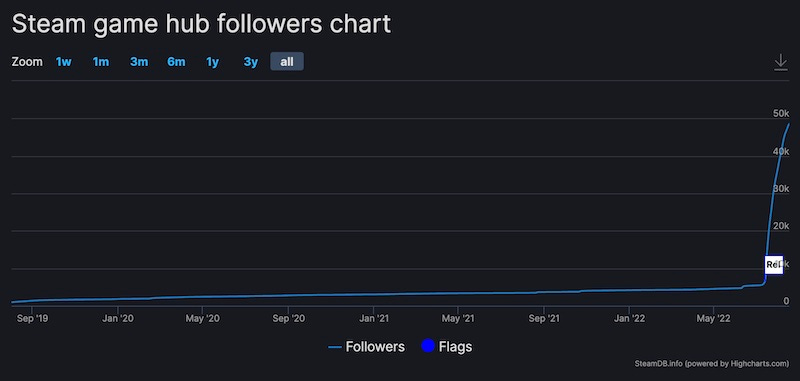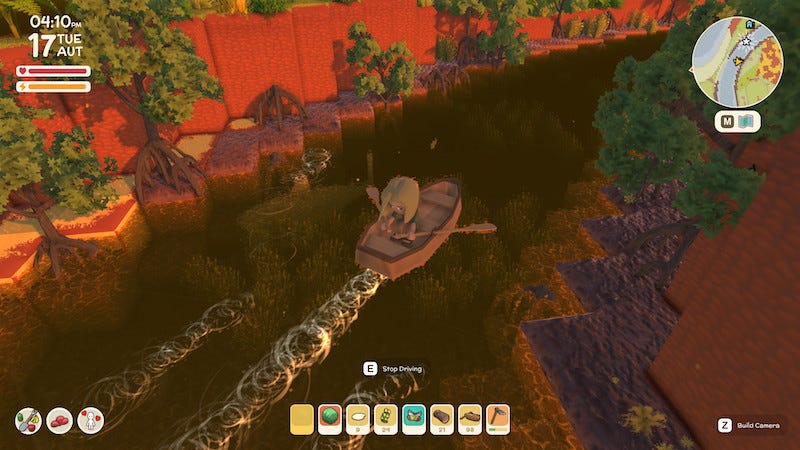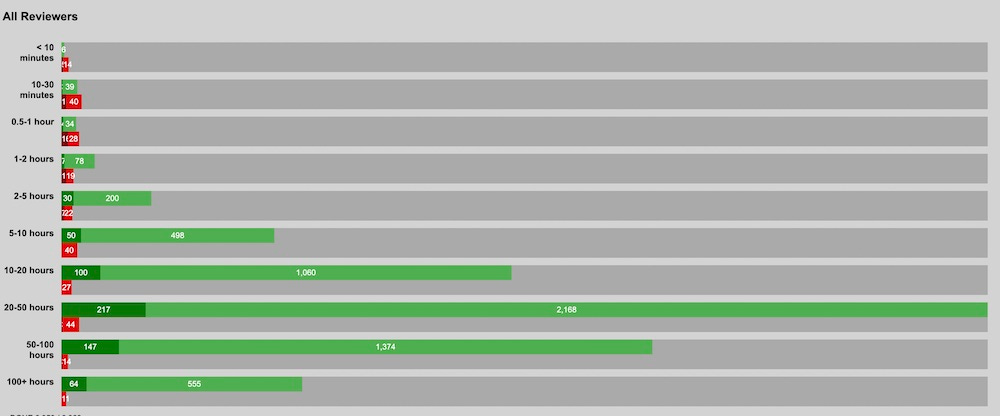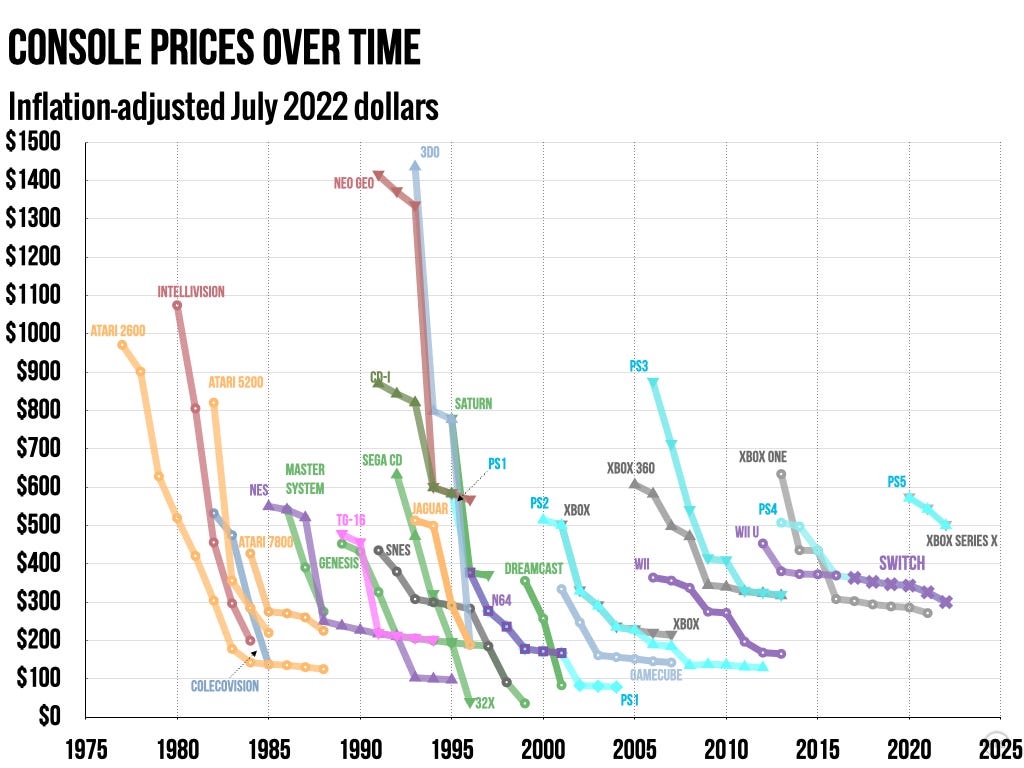Dinkum's 350k sales in a month: serendipity or foregone conclusion?
We chat to the solo dev behind the Steam smash.
[The GameDiscoverCo game discovery newsletter is written by ‘how people find your game’ expert & company founder Simon Carless, and is a regular look at how people discover and buy video games in the 2020s.]
Welcome back to your mid-week madness edition of the GameDiscoverCo newsletter. We were planning to lead with some ‘hardcore data’, but we managed to chat to Dinkum creator James Bendon, so that’s fast-tracked to be today’s newsletter.
Random tip before we start: MIT Press publishes great (academia-tinged) books about video games, and this Humble eBook bundle includes Jesper Juul’s cultural analysis of indie games, Handmade Pixels (which interviews me!), and Bernie DeKoven’s ‘how people play’ classic The Well-Played Game, among many others. Recommended.
[If you dig what we do, support us a GameDiscoverCo Plus paid subscription! You get our an extra data-rich weekly PC/console game trend analysis newsletter, an interactive Steam ‘Hype’ chart back-end, two ‘how to’ eBooks, a member-only Discord & more. Sign up today.]
Dinkum: analyzing its smash Steam success…
One of the tricky things about talking about success in PC/console video games is simple: what did the successful title do differently? There’s thousands of games released every year, and a decent percentage are high quality, well-crafted titles.
But why do some games just ‘go large’? In search of an answer, GameDiscoverCo talked to James Bendon about Dinkum, his Australian-themed ‘Animal Crossing meets Stardew Valley’ title, one of the breakout Steam games of 2022 so far.
I think it’s fair to say that James - who is a GameDiscoverCo newsletter subscriber - has been stunned by the success of the title. It’s still getting 6-8k CCU daily, and he tells me it has sold around 350,000 units on Steam since its July 14th. (That’s a 55x ‘reviews to sales’ ratio on 6,279 Overwhelmingly Positive Steam reviews, btw - big games often have higher ratios.)
But how? Was it ‘nature’ (the game as designed) or ‘nurture’ (things James did while promoting it)? Why is Dinkum the #2 most reviewed new paid game on Steam in July 2022, according to our Plus data? Here’s some thoughts:
Dinkum had great - but not outstanding - pre-release momentum…
If you look at SteamDB’s followers chart for Dinkum - and ignore the post-release explosion, haha - you can see that the game got close to 6,000 Steam followers by its mid-July launch. (That’s in the top 2.5% of all Steam releases.) But it was almost all slow organic growth over multiple years.
James admits: “I was very bad at keeping people updated with the development. I started with a Devlog that went from fortnightly updates, to monthly to no post at all for months. The only updates I would show were through Twitter videos.”
However, he noted that he had some help with marketing in the last few months before release, which got him into IGN's Summer Of Games show and a small highlight in the Future Games Show.
The game’s wishlists were around 35,000 before those pre-release bumps, but around 80,000 at launch - also due to big pre-release YouTube videos from Raptor (and others) which James & friends sent early Steam keys to. (Wishlists now at 460,000 post-launch!)
[BTW, the wishlist doubling didn’t have the same effect on followers, which is interesting. I still think that decoupled follower/wishlist scaling can be a sign of casual or even poorer quality wishlists, but clearly things turned out fine here!]
A hole in the market for deep, good-looking Animal Crossing-a-likes?
For me, ‘the game’ is the thing - not necessarily the marketing. And although James referenced ‘luck’ in terms of him breaking through, I do think the surface Animal Crossing-like nature of Dinkum has really helped people notice it.
There’s actually a really interesting top Steam review which lists the Animal Crossing elements to the game: “Villager system… Get your own house, go in debt like Tom taught you…. collecting creatures and fish with a museum like system… decoration”, but also deeper, more Stardew-elements like farming & cooking, mining, days being on a timer, and an energy system.
When we asked James about Dinkum’s USPs, he said “…a big map and the light survival mechanics have helped [it] stand out. The map itself is quite large, with different biomes that have their own plants and wildlife found in each. There is no penalty to players building where they want, which I hope leaves the game feeling more like a sandbox than other games in the genre.”
He also makes a great point: “Having the player start with no items, on the lookout for predators and hunting for food makes the beginning of the game feel very different to other games in the genre… to be honest, this was kind of accidental throughout development. But I think it makes the players appreciate what they've built and where they've come from.”
When I think about games that explicitly give me an Animal Crossing vibe on Steam, there are few. And some, like Cozy Grove, are deliberately designed to be a focused, limited daily play. So I think this is a huge reason why the game is doing well.
The game is incredibly (surprisingly?) deep for a solo project
If you use Steam Scout to look at the ‘hours played’ for Steam reviewers for Dinkum, you’ll see the biggest area is 20-50 hours, and there’s also a lot of >100 hour players of the game. This is because there’s just a LOT of stuff to do in the game. (And it’s fun!)
Honestly, if I was evaluating this game for a publisher, I would be worried it was overscoped. James admits: “Dinkum took much longer than expected! I think the content is so wide because I didn't plan out new features enough.” But he should also give himself credit, because he playtested and was picky about what to keep and what to toss.
He notes: “I mostly had a small group of friends who would play the game every few months. At the start, I would have to ask them, but after a little while, I would see them playing without persuasion. That was a good feeling.” So not a wider demo/beta process, but some validation of process.
James also noted that some features that started with him thinking ‘it would be cool if…’, such as metal detecting, ended up working well. But some “ended up being broken and had to be nerfed right before launch, like the animal trapping… It's been interesting to see what parts of the game players are resonating with, and which ones need more work.”
But why this game? Why not a thousand others?
So, Dinkum’s sales trajectory - alongside its ‘Overwhelmingly Positive’ sentiment (>95% positive reviews, rare in games with many thousands of reviews) - tells us that it’s going to be selling millions of copies over time.
And our one paragraph explanation of why, if we really try to get to the bottom of this: “Outstanding quality, deep Australian-themed twist on the (surprisingly undersupplied) Animal Crossing formula, improbably crafted by a solo dev with care and attention - and very YouTuber and game guide-friendly.”
Or even simpler: it’s not always about perfect marketing execution, it’s about ‘right vibes, right game, right time’. I guess it is - sometimes - serendipity at work. But there’s absolutely nothing wrong with that.
Rumbleverse & MultiVersus: rise of the F2P brawler(s)!
We don’t talk about F2P PC/console games so much, partly because they are a) high risk/high reward and b) difficult to track from a monetization, download & CCU point of view. But we’re making an exception for two notable newer games.
Firstly, Iron Galaxy’s battle royale brawler Rumbleverse, which is one of the first fruits of the Epic Games Publishing initiative we talked about last December. It’s clearly not a cheap game to make, but launch seems to be going pretty well so far.
As an Epic Games Store (timed?) exclusive on PC, it’s #6 on EGS’ top-grossing games right now (ahead of both Dead By Daylight & Grand Theft Auto!) And we estimate 1 million+ console downloads across both PlayStation & Xbox - with about 75% of those on Sony’s system.
Regarding EGS download #s, unfortunately there’s no direct data on the platform. But one data point we do know for Rumbleverse - it's getting 2,000+ EGS store user ratings per day, and has 13k+ ratings LTD. If we go by Steam rating multipliers - and we have no idea if that’s right, since the process works differently - it could be 1 million PC downloads already...
Obviously, Player First/WB’s ‘Smash Bros. with Bugs Bunny’ megahit MultiVersus is the other big recent title out there. It’s #5 on EGS, and we saw recent speculation it’s reached 10 million players already. But we think it’s quite a bit more by now.
We’re estimating 9 million PlayStation players alone, another 3.5 million on Xbox, yet another 5+ million on Steam*, and perhaps 2-3 million** on EGS, for a total of 19-20 million players. (*via a GamingAnalytics estimate, thanks Tomek! **shakier estimate, via EGS user ratings.)
Of course, it’s all about CCU and monetization, not just downloads. But it’s been a hot minute since we’ve seen any new F2P IP make these kind of moves. Heck, look at the top-grossing EGS charts and see how many older F2P titles populate them. So it’s good to see some fresh blood in there.
The game discovery news round-up..
Finishing up the week - except for you lovely Plus subscribers, who get a big game analysis in your inboxes every Friday - let’s take a look at the latest platform and discovery news, as follows:
Inflation-adjusted prices for every game console since the late ‘70s? Bring it on, Ars Technica! The graph (above) is from an article asking whether Nintendo Switch will ever cut its price in real terms. To which the answer seems to be ‘not right now, people still like it too much!’
Hey, a ‘# of redemptions for a free Epic Games Store game’ number. The super-fun Cook Serve Delicious 3 has been redeemed 5 million times, according to dev Vertigo. (But remember, ‘clicking redeem’ and ‘actually playing’ aren’t the same thing. Nonetheless impressive.)
Crusader Kings publisher Paradox is raising prices on some CK III DLC from $6.99 to $12.99 “to reflect the overall value of this kind of content moving forward.” So yep, underpricing can be awkward. And if that’s what it is, it’s rare to see people ‘fix’ this in midstream!
We haven’t seen how it was actually received in-game, but these Riders Republic in-game events to draw attention to climate change are an interesting effort: “Players could collect and plant seeds, growing trees to create a new forest in the game (which will remain after the event ends)”, as well as a ‘virtual climate march’ & a special race themeds around climate change.
Uhoh, are devs making cheap games with insta-complete achievements on PlayStation? As noted on Twitter: “There is a developer called ThiGames that has released 20 different jumping food games on PS5 since May 15th of THIS year, 80 total across 4 stacks. Each with a 2 minute platinum [trophy]. They are asset swaps. This is partially why I can't find good quality indie games on the store.” (This happens across all services with stackable XP, right?)
A revelation to me as part of MobileGamer’s weekly SensorTower ‘top iOS/Android revenue/download charts’ - there’s a Tencent-created ‘League Of Legends eSports Manager’ mobile game that just topped the mobile download charts in China. (That’s a super-interesting meta-product.)
Another Polish game sales disclosure from a few days ago - Thief Simulator’s Quest VR version sold 40,000 units in its first few days on the platform. It had 555 ratings at the time this announce went out, so its ratings to sale ratio was around 72. (Bonus: PlayWay’s CEO recently estimated that a good ‘ratings to sale’ ratio range on Quest is 65-90, based on multiple titles.)
Some ‘taking to task’ of Sony for not shipping many ‘classic’ titles in PS+ yet: “PlayStation Plus's latest blog post confirmed that 11 games would land on the service's premium and "extra" tiers in August… it doesn't include games from any Sony console library outside PS4 and PS5. That follows a July addition of only three "classic" games, all from the PSP, to PS Plus.”
Non-industry microlinks: a super-brainy Ben Thompson post about why Instagram influencers are worried about a move to ‘all-AI’ content picking; did you know that news media companies are paying for articles to be displayed as Subway Surfer ads to juice their metrics? Sigh…
Finally, I am so happy that Fruit Ninja & Jetpack Joyride designer Luke Muscat (most recently working in Snap’s games efforts) - is now a solo indie, and making witty & interesting videos about constructing games again. Minutes old, here’s his first:
[We’re GameDiscoverCo, an agency based around one simple issue: how do players find, buy and enjoy your premium PC or console game? We run the newsletter you’re reading, and provide consulting services for publishers, funds, and other smart game industry folks.]




